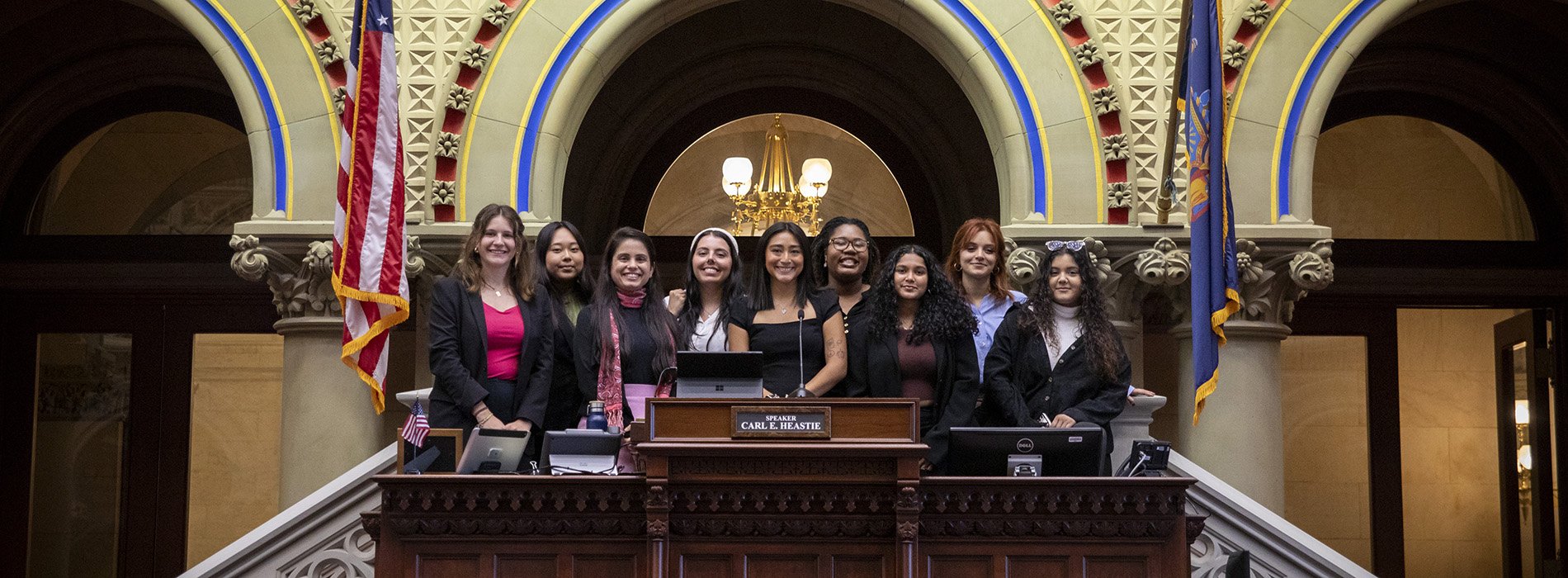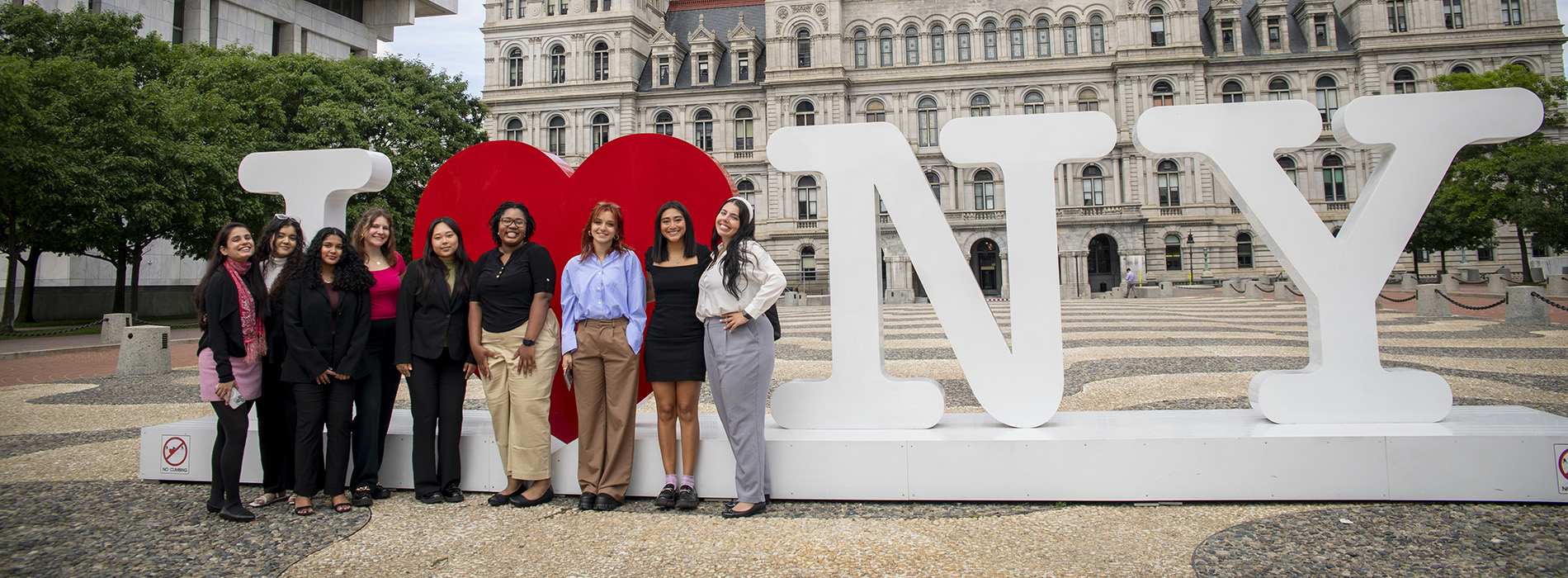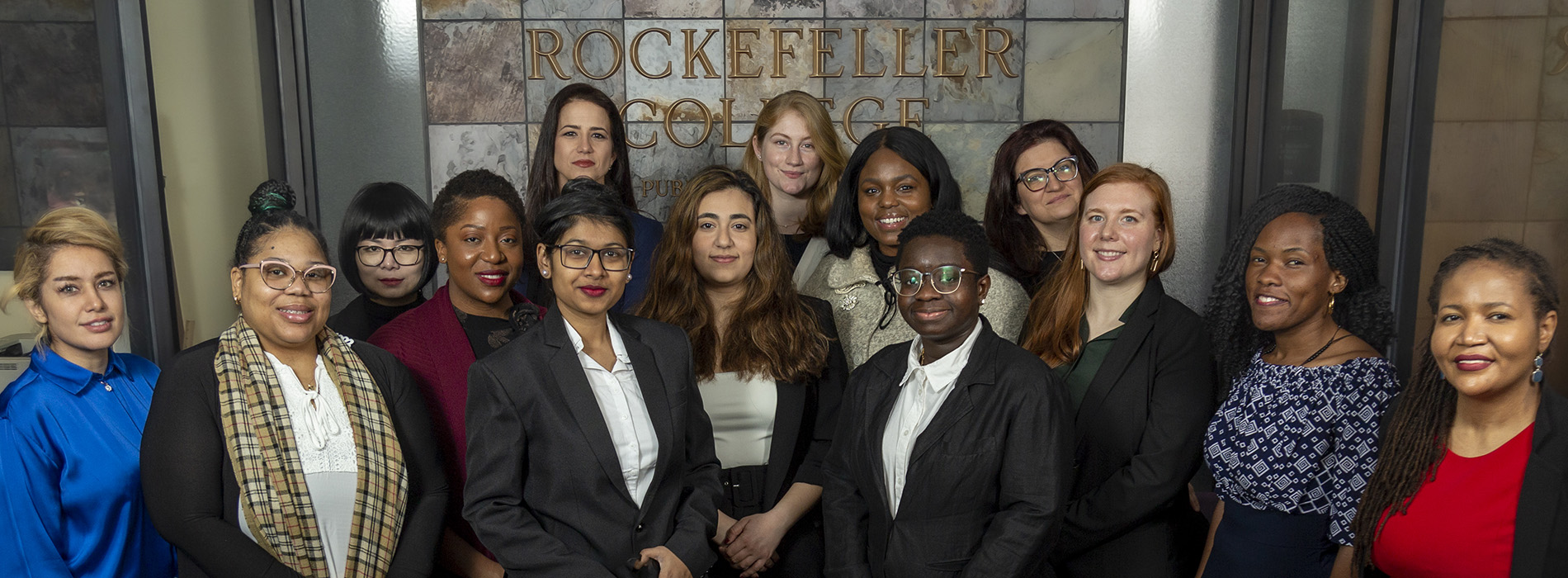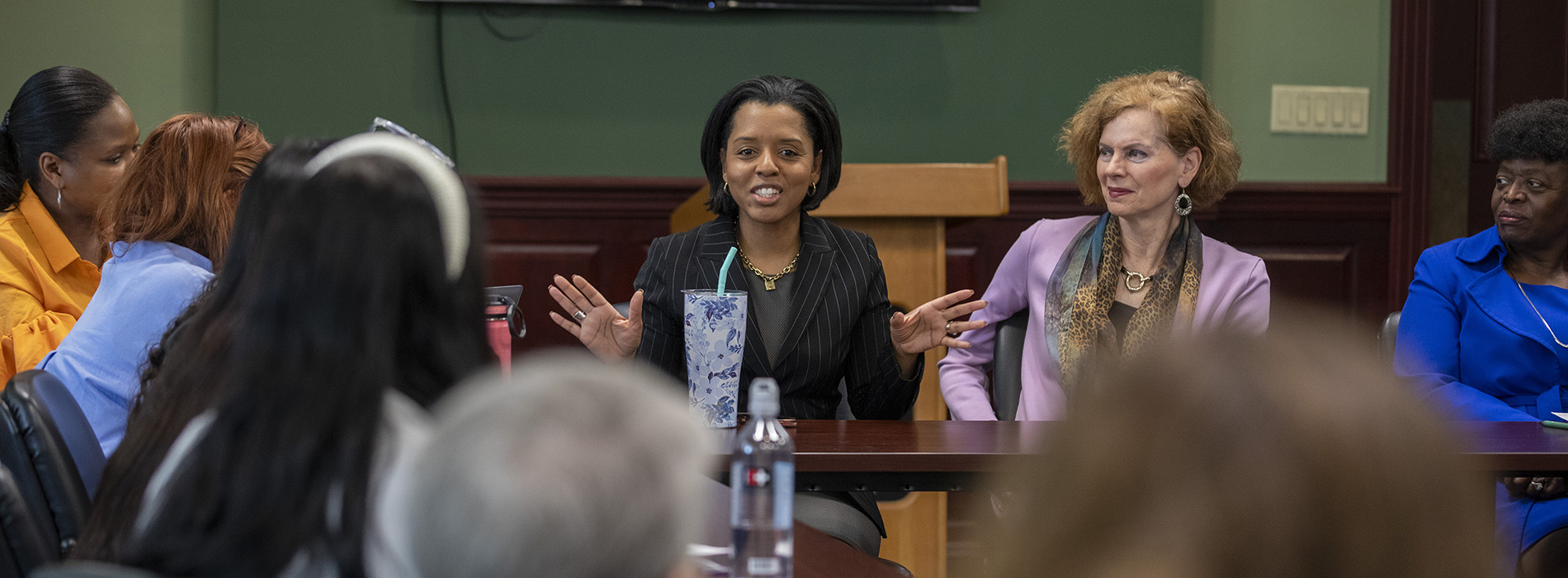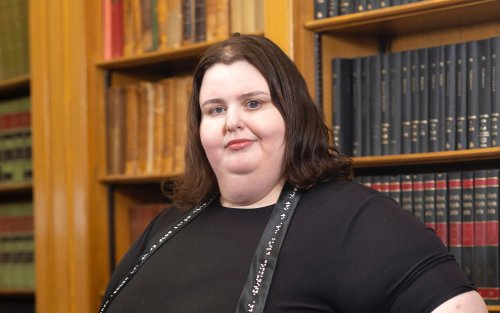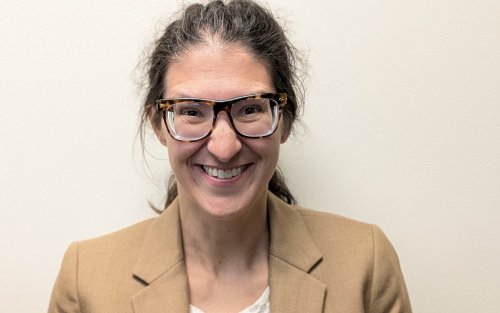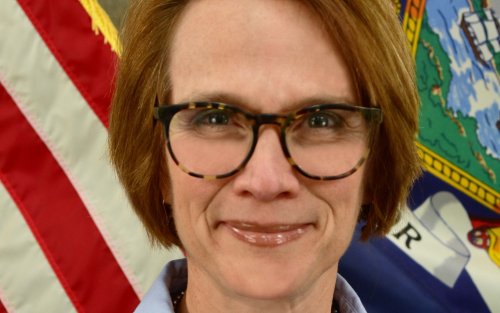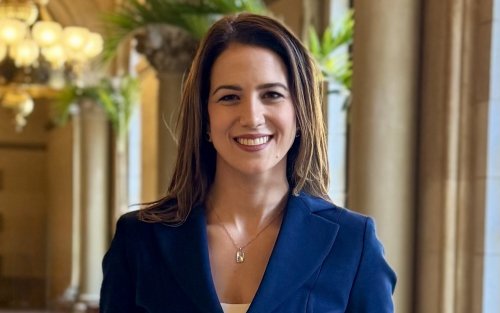Promoting Social Justice and an Equitable Society
For 45 years, CWGCS has been a premier academic research and education center with a social change agenda.
We expand opportunities and create possibilities for all students. The Center for Women in Government & Civil Society is part of the Rockefeller College of Public Affairs & Policy and is open to all, regardless of sex or gender.
Fellowship Application
The 2026 Fellowship Application is now open — submit yours today.
Vision
A world where people of all background participate equally in shaping the future.
Mission
CWGCS seeks to deepen and broaden political access, economic opportunities and social inclusion by strengthening the capacity of government, nonprofit and business sectors to implement responsive, inclusive and equitable policies, practices and services.
Guiding Principles
- Participatory decision-making and mutual respect
- Recognition and celebration of diversity
- Sensitivity toward boundaries, including those of geography and identity
- Engagement with the community to inform our practices and work
- Continuous evaluation of our work towards achieving equity
- Readiness to embrace challenge as an agent of growth
Core Values
Equity, Inclusion, Diversity, Integrity, Equality
Strategic Focus
Provide purposeful research and transformative education that:
- Fill knowledge gaps and facilitate the implementation of evidence-based approaches to advancing social equity.
- Raise awareness about intersecting inequities.
- Promote equal participation of all people in all aspects of society.
The Center advances a rigorous research and education agenda that focuses public service leadership, economic security, health disparities, and safety and well-being.
Public Service Leadership
The lack of balanced representation at the decision-making tables in every sector, particularly in public service leadership, is one of the most critical challenges we face as a society today.
When we do not see equitable representation at the decision-making tables, we tend to trust government less and have less confidence in the credibility and legitimacy of government. We tend to have less faith in the ability of government to fully represent us and genuinely act in our interests.
All of this translates to political alienation, lower political participation and an unhealthy democracy.
When people of all backgrounds are not equally represented in public service leadership, the needs and issues that affect minoritized groups disproportionately tend to be marginalized. When governance structures exclude, they shed doubt on the competency and ability of excluded groups to serve as leaders
Furthermore, when we narrow the pool of talent from which we are drawing, we diminish our ability to capture the full potential of the workforce.
We must help all people construct and internalize leadership identities and provide them with the tools to address subtle and invisible forms of bias that interfere with their leadership identity construction.
Economic Security
There are artificial dichotomies that hinder individuals from accessing high paying careers in science, technologies, engineering and mathematics. This is a matter of economic justice and social justice, but it is also a matter of maintaining economic development and global competitiveness.
Our ability to meet workforce needs mandate that we widen the pool of talent that we are drawing from to include all people. Our changing demographics point to this critical need.
Furthermore, research illuminates disparities in economic, political and social outcomes between different population groups. We must reform implicit and explicit institutional cultures as well as formal and informal structures that create exclusions and marginalization.
Health Disparities
Differences in health outcomes between groups are well documented in the research and practice literature. The World Health Organization (WHO) identifies disparities by the presence of differences in health outcomes that are unfair, unjust and are unnecessary and avoidable. WHO provides the criterion by which one determines if a difference is actually an unjust and unfair disparity by stating that if a person had restricted, limited or no choice in situations that produced poor health then the outcomes are produced by social forces or social determinants of health that are unnecessary and avoidable. The Center’s work contributes to bridging the knowledge gap in advancing equity and quality of healthcare and eliminating health disparities.
Safety & Wellbeing
Intimate partner violence continues to be a pervasive problem nationally and globally. The Center’s work raises awareness about the persistence of the problem and contributes to the development, implementation and evaluation of evidence-based approaches to prevention and eradication that are informed by survivors’ perspectives.
CWGCS has been relentlessly working to fill knowledge gaps, develop evidence based approaches to advance parity, strengthen system responsiveness, raise awareness about existing inequities, and deepen and broaden access to educational and economic opportunities.
Our vision of a society, free of inequities where people of all backgrounds participate equally in shaping the future, remains at the center of everything we do.
Together, we can keep the momentum alive, and make our collective vision a reality. Get involved with your Center for Women in Government & Civil Society!
Board of Directors
The Directors are drawn from both the public and private sectors, from agencies and advocacy groups, labor and management, elected and appointed officials, former Fellows on Women & Public Policy and academia.
CWGCS Board of Directors
Karen Carpenter-Palumbo*
President
Terri Crowley
Vice President
- Dr. Rukhsana Ahmed
- Honorable Dr. Dorcey Applyrs*
- Dori Blanchard
- Lola Brabham
- Kathleen Brady-Stepien*
- Dr. Shanleigh Corrallo*
- Alexandra Greene
- Honorable Patricia Fahy
- Dr. Janell Hobson
- Canon Kay Hotaling
- Honorable Rachel Kretser
- Dr. Jennie Law*
- Hollyanne Lupi*
- Dr. Julie Novkov
- Hilary Papineau*
- Honorable Susan Pedo
- Dr. Debernee Privott
- Dana Rosenstreich*
- Emily Steinbach*
- Jessica Tanguay*
- Lauren Tobias
- Ruth Walters
*Former Fellow on Women & Public Policy
Staff
Dina Refki, DA
Executive Director & Clinical Professor
Email Dina
518-442-5127
Jisang Kim
Research Associate
Email Jisang
Esther Kim
Research Associate
Email Esther
Hongseok Lee
Research Associate
Joan Nellhaus
Fiscal Manager
Email Joan
Dr. Debernee Privott
Co-Chair Women’s Leadership Academy
Email Debernee
Christine Rutigliano
Fellowship Instructor
Ryan Bunce
Publication and Media Specialist
135 Western Ave
Albany, NY 12203
United States



